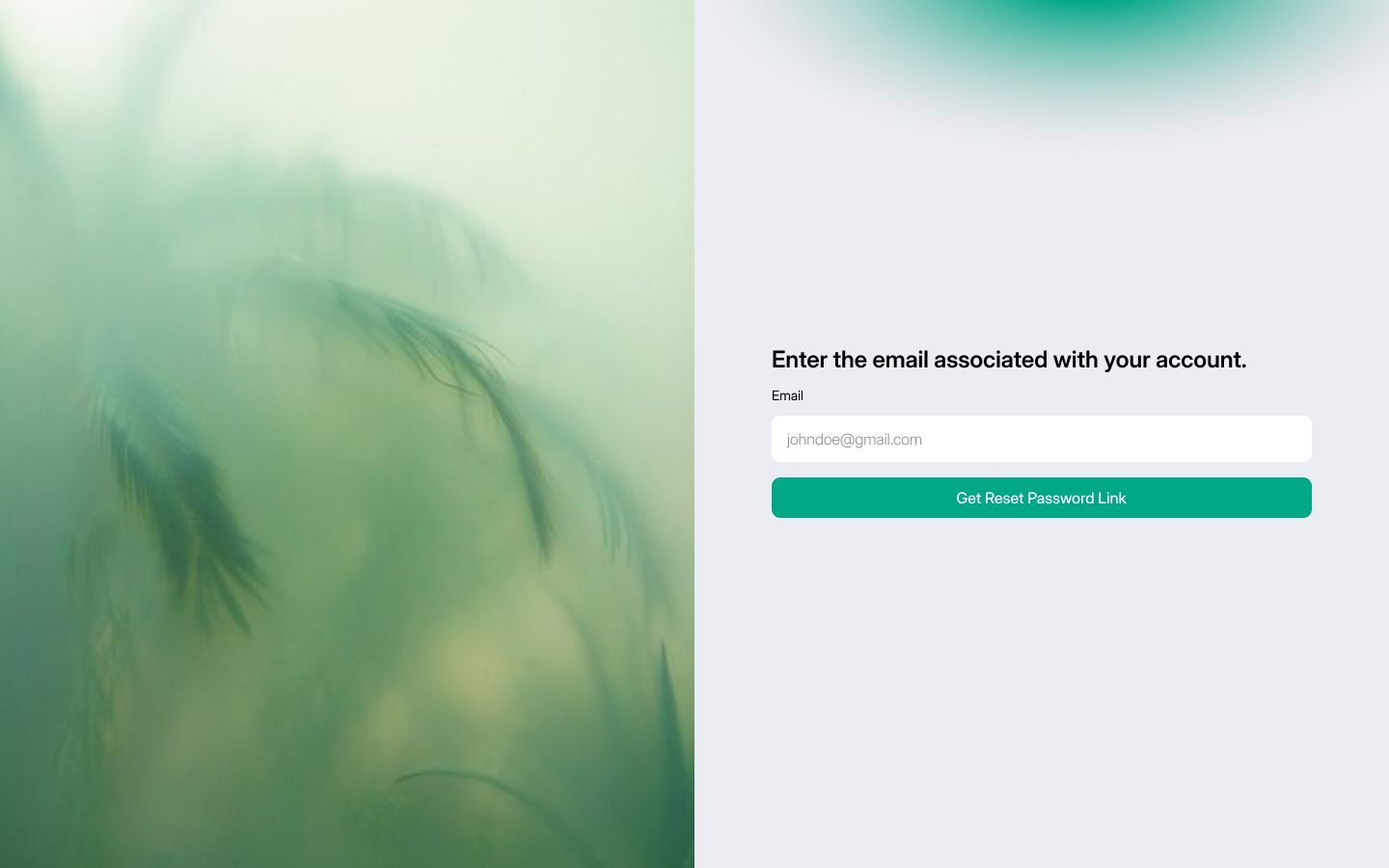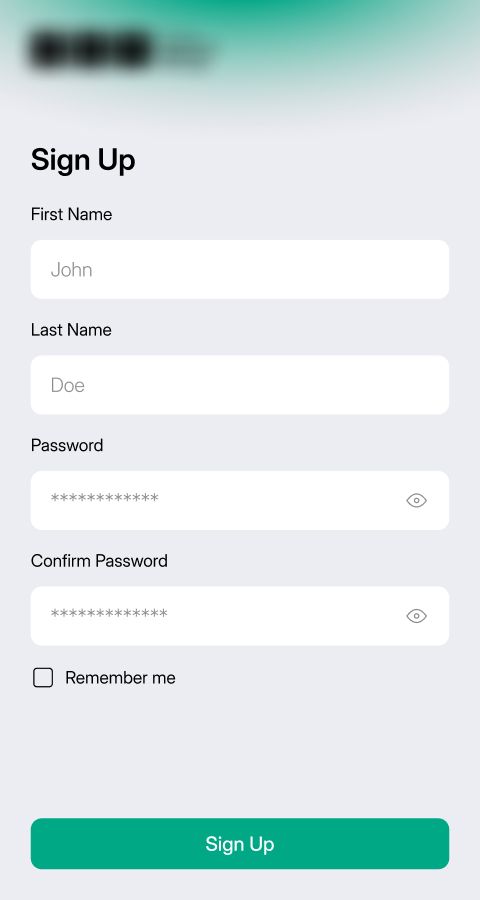Optimize the intake process for a mental health clinic by understanding existing workflows and identifying key requirements for both patients and administrators. The project focused on designing a digital platform that balances user-friendliness, efficiency, and security, while remaining within resource and time constraints.
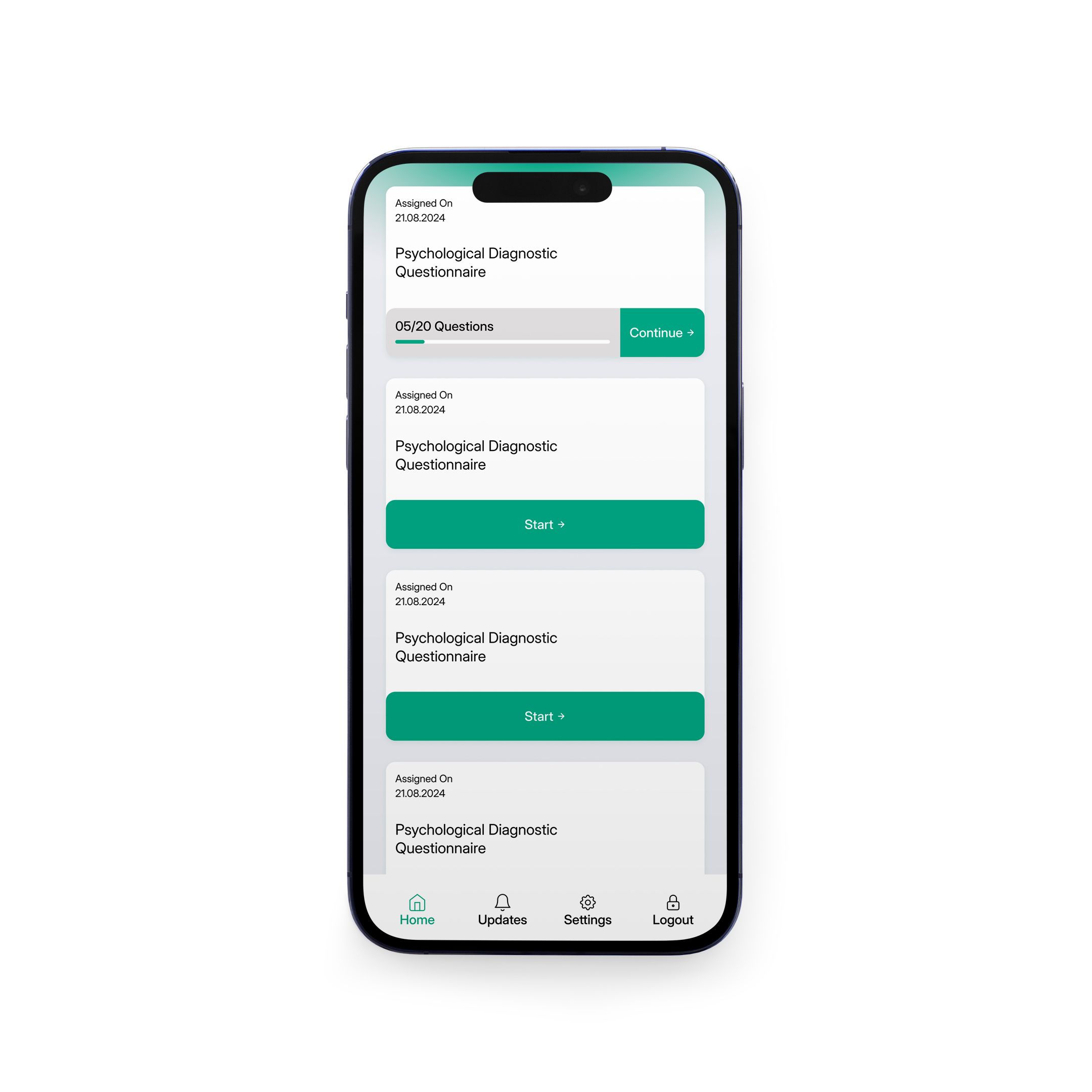
Conducted user research, including stakeholder interviews and process flow analysis, to identify key requirements and pain points for a new digital intake system.
Translated research insights into wireframes, built a design system for the web application, and created comprehensive dev handover documentation.
Developed the web app using Svelte, implementing design systems, dynamic UI components, backend API integrations, Business logic to algorithm and ensuring security and hosting.
Our research focused on understanding the existing intake process at a mental health clinic and identifying key requirements for a new, digital system. We conducted in-depth interviews with the Director (a Clinical Psychologist) and the Clinical Intake Coordinator to gain a comprehensive understanding of their perspectives and challenges.
The administrative process heavily relied on manual data entry, creating reports, and sending emails, resulting in a significant workload for the admin team. This manual process was time-consuming, prone to errors, and lacked a seamless integration between different systems (website, Filemaker, Google Calendar).
Automating Tasks
Centralized Platform
Automated Notifications
Clients expressed frustration with the existing online questionnaire platform (Gravity Forms), particularly those less tech-savvy. The platform lacked a user-friendly interface, progress tracking, and automated feedback mechanisms, leading to client frustration and a negative intake experience.
User-Friendly Design
Progress Tracking
Assigment Notifications
Mobile Accessibility
To effectively design a digital intake system for a mental health clinic, we needed to deeply understand the existing process and its challenges from the perspective of both the admin team and the Director (a Clinical Psychologist). We conducted in-depth interviews using a structured approach to ensure we gathered comprehensive insights. Due to limitations, we were unable to directly interact with patients or conduct user testing.
Clinic Background & Demographics
Existing Intake Process
Expectations for a New System
Specific Concerns
Goals
Challenges
Strengths
Weakness
Insignts
Suggestions
Digital Transformation is a Priority
Focus on Client-Centricity
Standardization and Automation
Difficult Printed Questionnaire
Lack of Standardized Assessments
Limited Data Analysis
Potential for Missed Opportunities
Administrative Workload is a Major Issue
Integration is Crucial
Real-time Feedback is Essential
Centralized Dashboard
Fragmented Systems
Automated Notifications
To ensure the design of the new digital intake system met the unique needs of our target audience, we developed detailed user personas based on insights from our stakeholder interviews. We crafted two distinct personas representing the clinic's primary client demographics and one focusing on the clinical intake coordinator
A busy professionals with limited time and a need for a streamlined, user-friendly experience. Her pain points included limited appointment availability, a time-consuming intake process, and a lack of clear information regarding costs and insurance coverage. She prioritizes ease of use on her phone.
A young adult facing financial constraints and seeking affordable therapy options. He was also apprehensive about seeking mental health help due to stigma and desired a user-friendly platform with clear information about different therapy approaches.
A busy professional who manages the flow of new clients, juggling a heavy workload of manual tasks. She seeks a more automated system to streamline her responsibilities, reducing the time spent on repetitive data entry, report generation, and email communication. Emily desires a platform that provides real-time feedback on client progress, easing the burden of manually checking for completed questionnaires. She values a system that simplifies communication with both clients and therapists, particularly when multiple therapists are involved.
To ensure the design of the new digital intake system met the unique needs of our target audience, we developed detailed user personas based on insights from our stakeholder interviews. We crafted two distinct personas representing the clinic's primary client demographics and one focusing on the clinical intake coordinator
Account creation
Questionnaire submission
Appointment scheduling
Data reporting
Therapist selection
Billing integration
Client Intake Form
Digital Diagnostic Tests
Progress Tracking
Feedback and Reporting
Audio integration
Client Management
Reporting
Client Intake
User Roles and Permissions
Questionnaire Management
Test Management
User-friendly
Mobile-accessible
Secure
Accessible
Advanced analytics
Performance
Scalability
Error Handling
Chunking of Form
Through in-depth interviews, we meticulously mapped the clinic's intake process, identifying crucial insights and pain points. We then prioritized features based on client requirements and resources, crafting a new, streamlined process flow. Detailed wireframes visualized the platform's structure and interactions, followed by a comprehensive design system for a consistent visual experience. Finally, we created clear dev handover documentation to facilitate seamless collaboration with the development team.
Account creation
Questionnaire submission
Client Intake Form
Digital Diagnostic Tests
Progress Tracking
Feedback and Reporting
Audio integration
Client Management
Reporting
Client Intake
User Roles and Permissions
Questionnaire Management
Test Management
User-friendly
Mobile-accessible
Secure
Accessible
Performance
Error Handling
Chunking of Form
We created detailed wireframes to visualize the platform's structure and interactions, ensuring a user-friendly experience for both administrators and clients. The wireframes were designed to be responsive, accessible, and intuitive, with a focus on clear information hierarchy and seamless navigation.
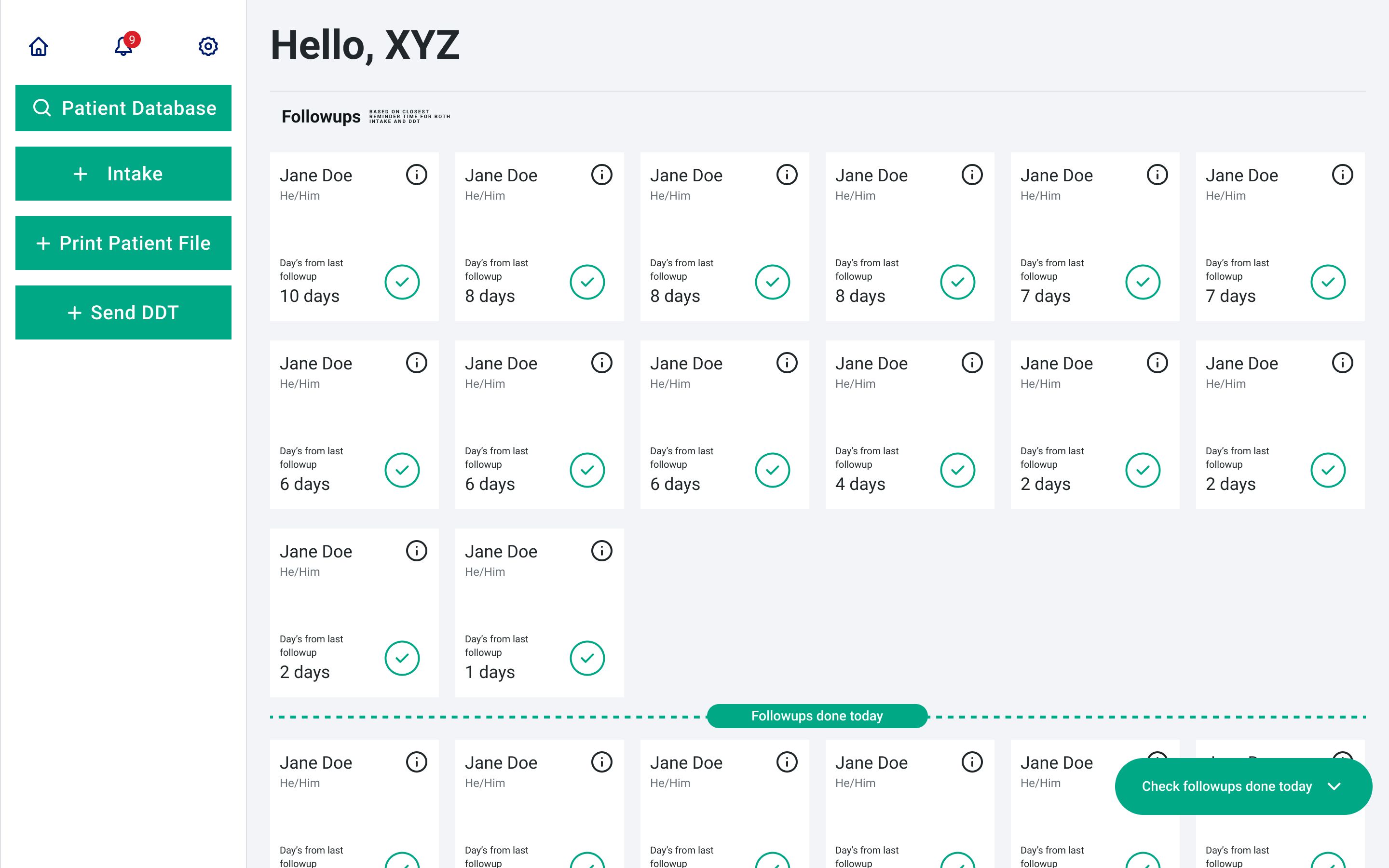
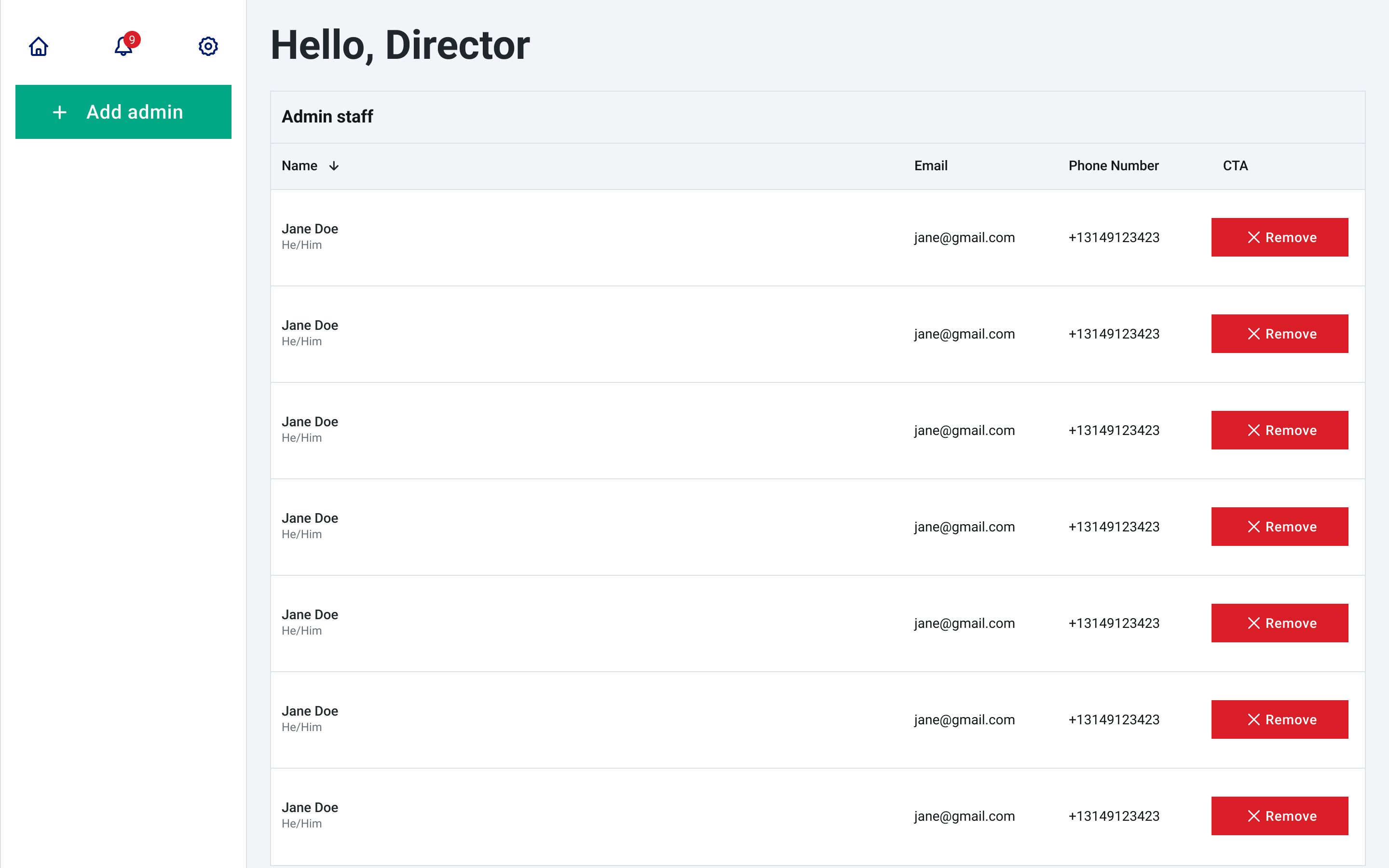
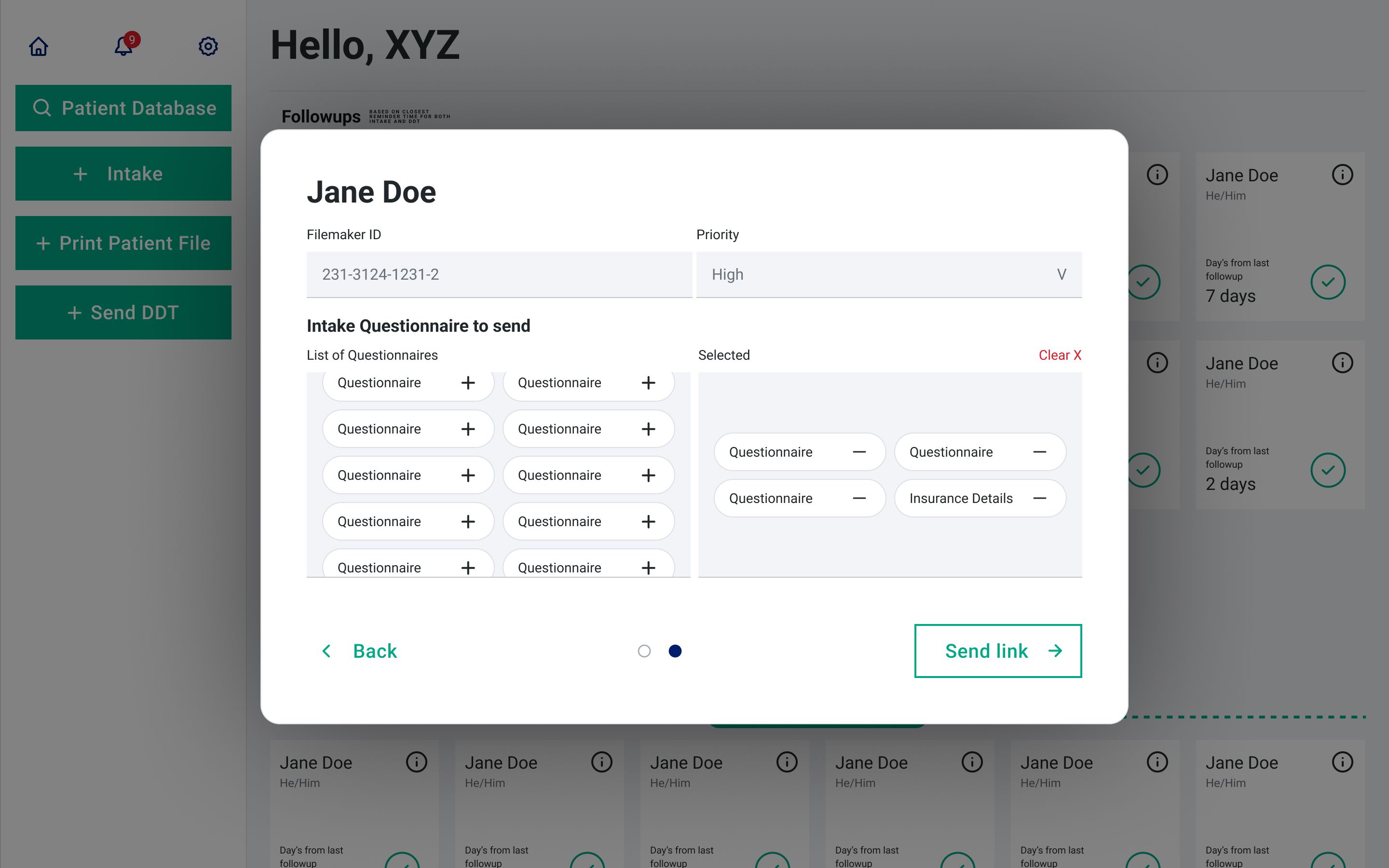
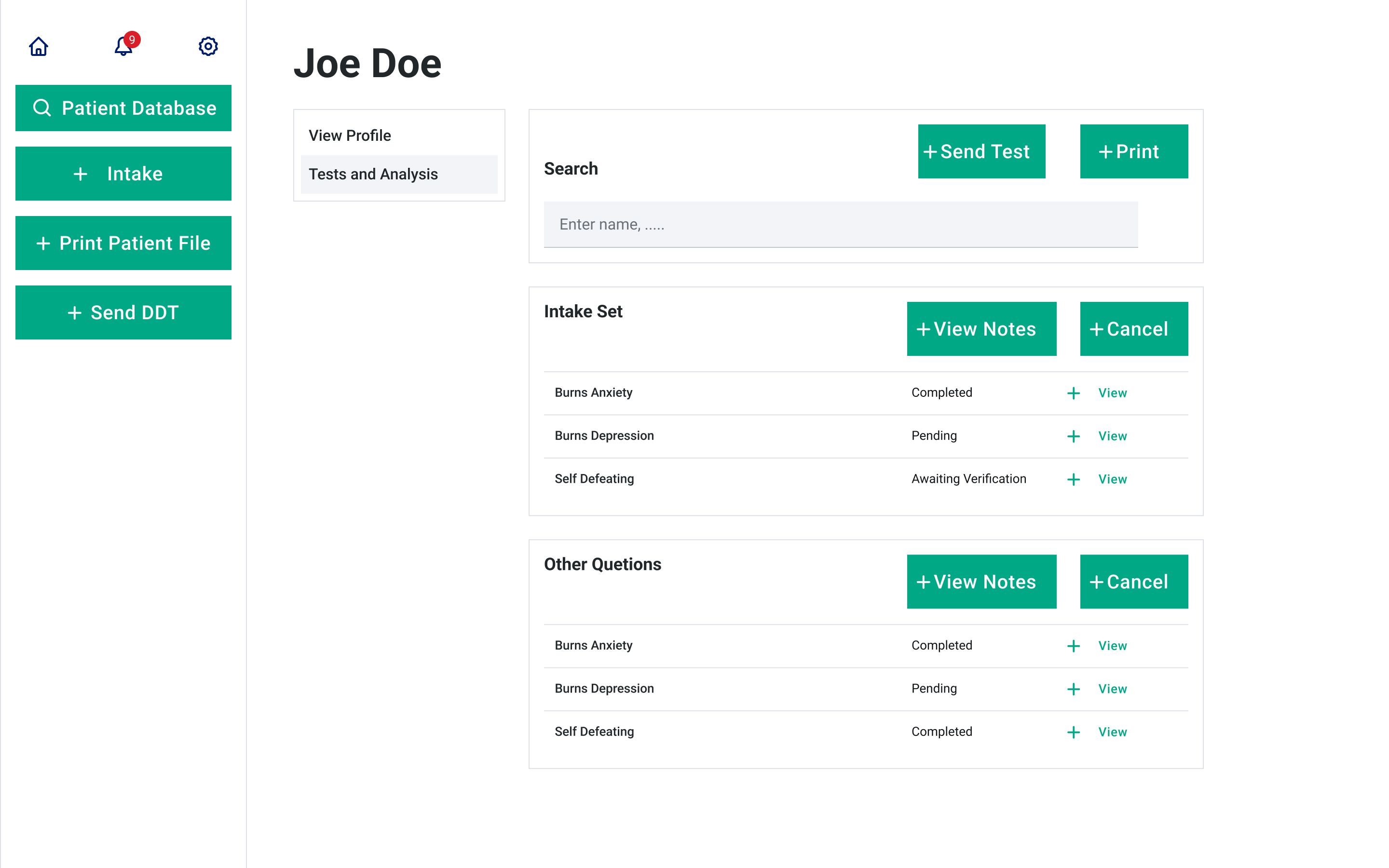
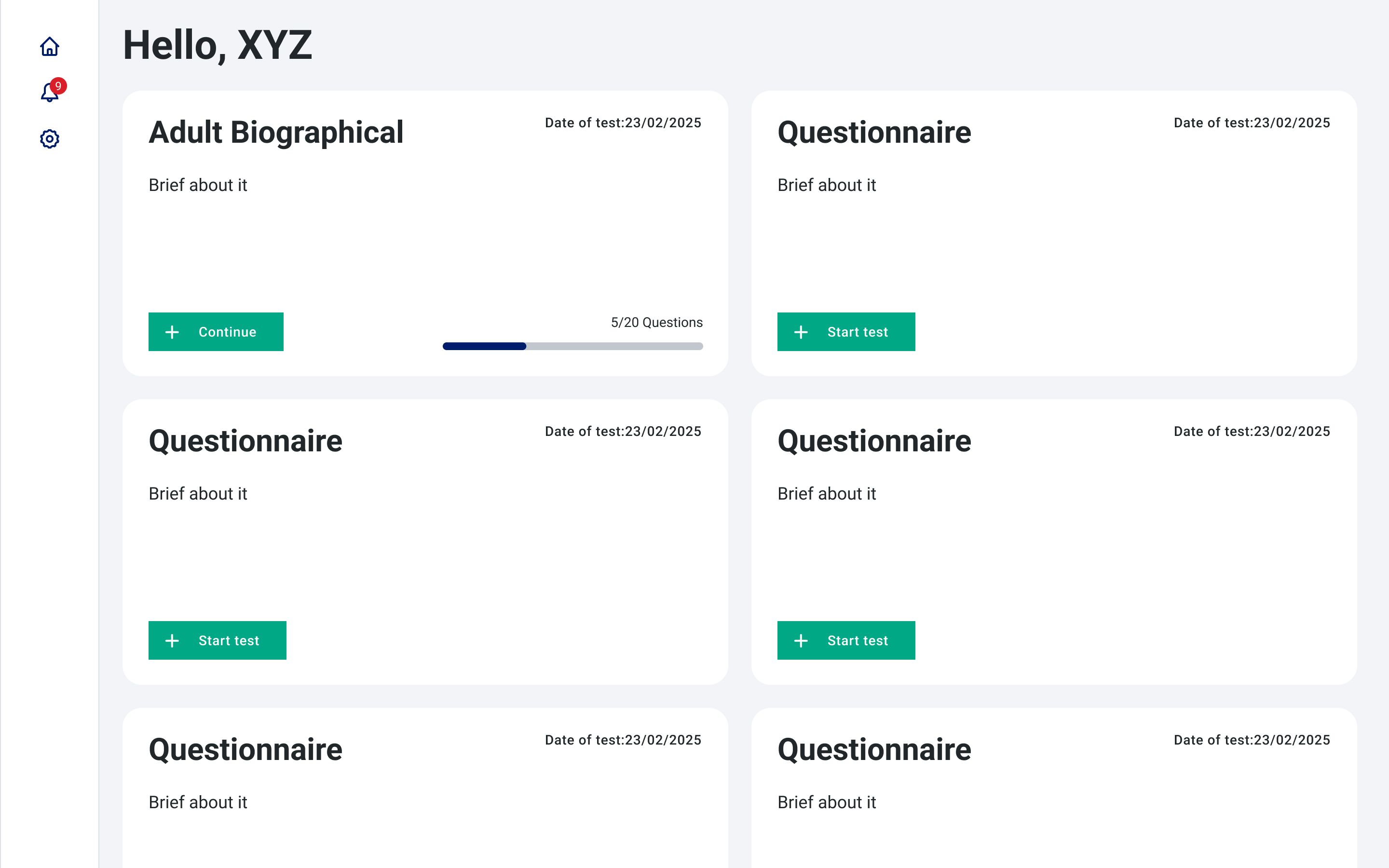
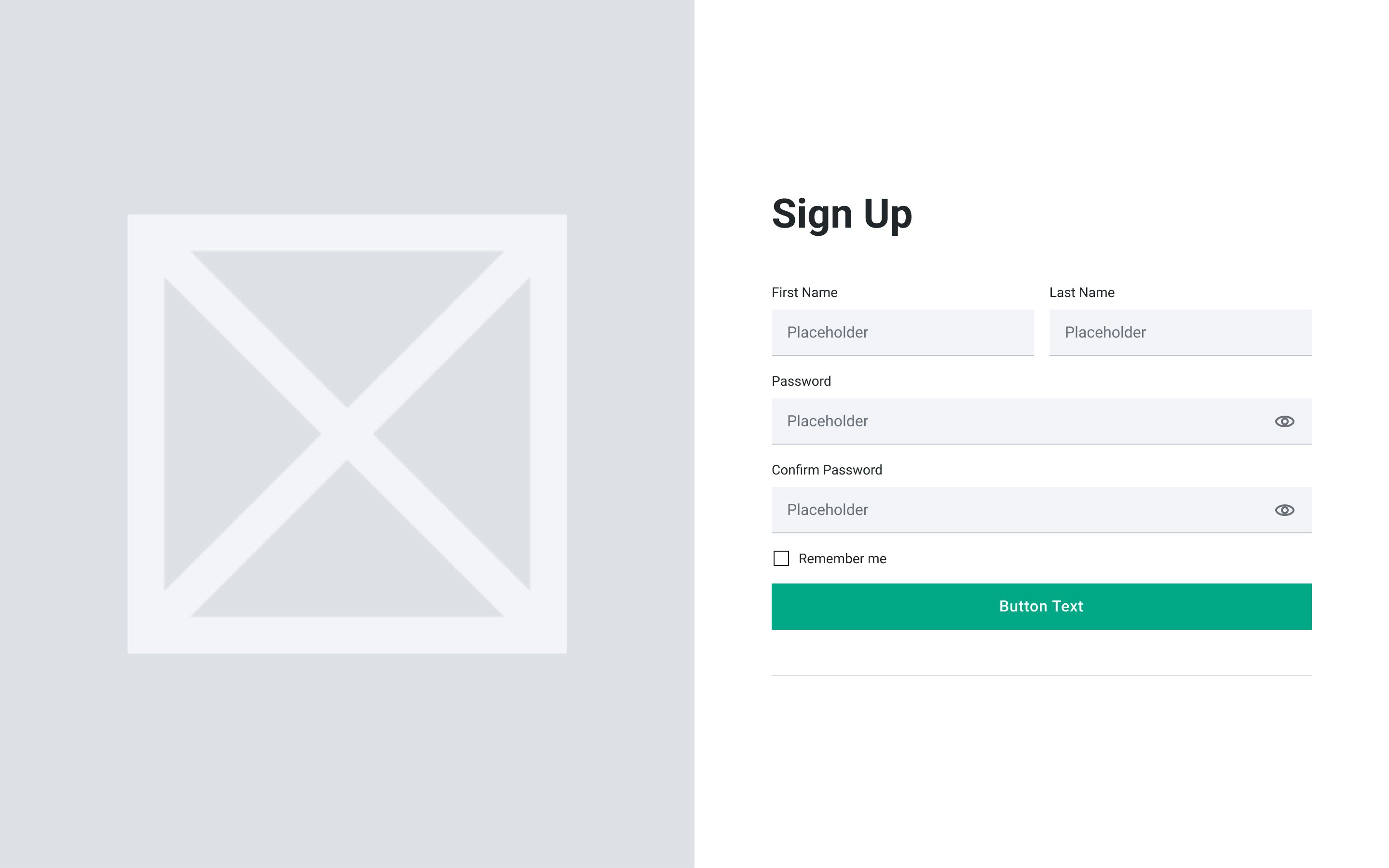
We developed a comprehensive design system to ensure a consistent visual experience across the platform. The design system included typography, color palettes, iconography, and UI components, providing clear guidelines for developers to implement the design accurately and efficiently.
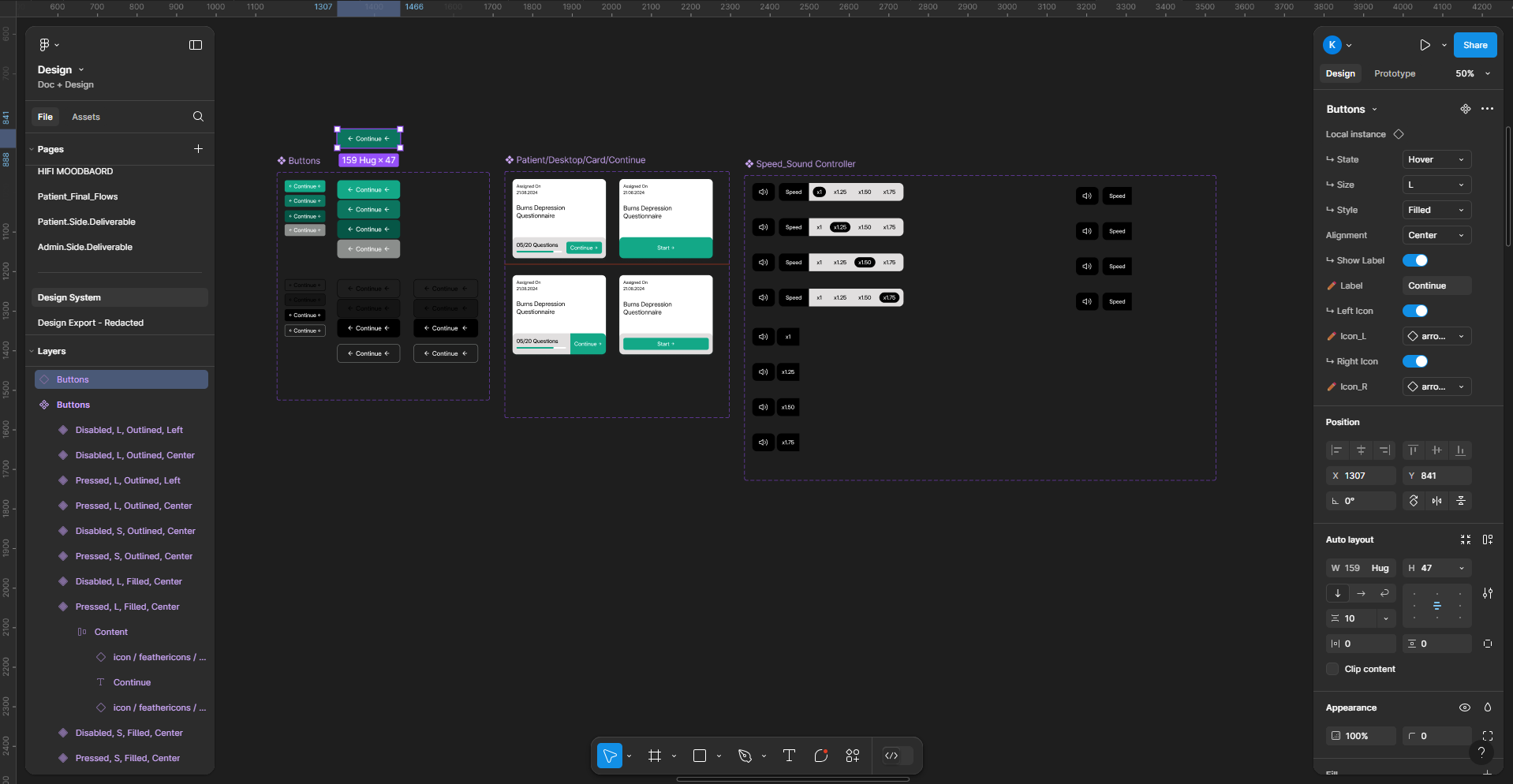
The final screens of the digital intake and assessment platform were designed to be user-friendly, accessible, and visually engaging. The platform's interface was optimized for both desktop and mobile devices, ensuring a seamless user experience across different screen sizes and devices.
